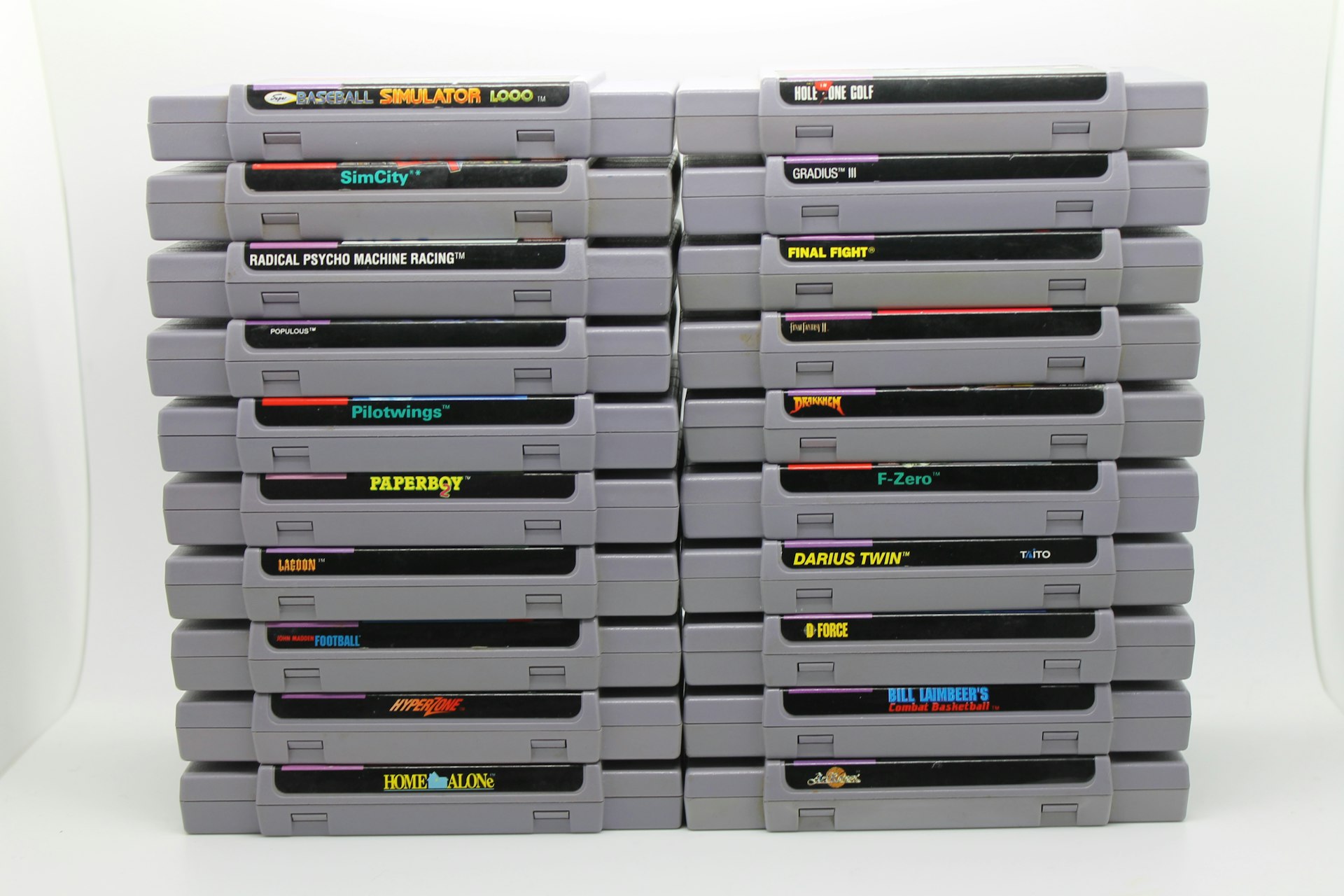Hybrid Board and Video Games: The Future of Interactive Play and Market Expansion

Photo by 6 9 on Unsplash
Introduction: The Emergence of Hybrid Board and Video Games
In recent years, the convergence of board games and video games has given rise to a new era of hybrid entertainment experiences. This evolution is being fueled by market demand for deeper engagement, innovative mechanics, and the seamless integration of physical and digital elements. As we approach 2025, these trends are reshaping not only how games are played but also how they are developed, marketed, and monetized [2] .
1. Market Growth and the Business Case for Hybrids
The global board game market is projected to reach $8.95 billion by 2025 , with a compound annual growth rate (CAGR) of 3.4% through 2029. Long-term forecasts anticipate expansion to $41.63 billion by 2033, with the Asia-Pacific region holding a 39.5% revenue share and the U.S. leading with $2.9 billion in 2025 [2] . This robust growth is strongly linked to the rise of hybrid games that combine physical components with digital enhancements.
For entrepreneurs, publishers, and designers, this trend presents significant opportunities. The hybrid model is rapidly becoming a cornerstone for both established companies and indie creators seeking to appeal to a wider audience. Companies such as Hasbro and Ravensburger are already leveraging digital integrations, while smaller studios experiment with innovative cross-platform experiences [2] .
2. Hybrid Digital-Analog Integration: What It Means
At the heart of this movement are games like
Mansions of Madness
and
Gloomhaven: Helper
, which blend traditional board gameplay with digital features such as rule management, dynamic audio-visual effects, and app-driven storytelling. For example, an app might track player choices, randomize events, or enhance immersion through sound and visual effects
[2]
.
This integration is not limited to app-driven enhancements. Some games incorporate augmented reality (AR), use QR codes for secret reveals, or offer online companion platforms for remote play. These features address common pain points such as complex rulebooks and setup time, making games more accessible to both new and seasoned players.
To experience these hybrids, consumers can search for major titles on e-commerce platforms, visit specialty board game retailers, or attend local board game cafes, many of which now host dedicated digital-analog events. As of now, always verify product compatibility with your device before purchase.
3. Innovation in Game Mechanics and Genre Blending
Developers are increasingly blending genres -merging elements of tabletop RPGs, trading card games (TCGs), and strategy board games. The result is a wave of titles that combine the tactical depth of TCGs with narrative-driven RPG progression. For instance, players might influence an evolving storyline through the outcomes of card battles, unlocking character development and branching narratives [1] .
Cooperative play and trick-taking mechanics are gaining popularity, with community-driven innovation fueling diverse themes and mechanics. Companies like Steamforged Games are adapting digital titles into strategy board games, further breaking down barriers between platforms [2] .
For publishers and retailers, staying ahead means monitoring trends via industry publications, attending major conventions such as Gen Con or Spiel, and engaging with online gaming communities for early signals on emerging hybrid mechanics.
4. The Cross-Platform Imperative
The philosophy of “build once, play anywhere” is now central to game development. Developers increasingly design games for cross-platform play from the outset, ensuring seamless player experiences across PC, console, mobile, and even tabletop formats [4] .
This cross-platform approach allows for persistent progression, shared friend lists, and synchronized content updates. It also enables porting classic board and video games to new platforms, expanding their reach and lifespan. For game creators, using middleware SDKs and engines that support cross-platform deployment is now a best practice.
Consumers interested in cross-platform hybrid titles should check the product details on official publisher websites or major gaming platforms, and verify device compatibility. For older titles, search for remastered or digital editions that support cross-play features.
5. Monetization: The “Buffet” Model and Subscription Services
Monetization in hybrid games is evolving. Successful titles no longer rely on a single payment model but offer a “buffet” of options, including premium purchases, cosmetic microtransactions, direct web shop purchases, and subscription passes [5] .
Subscription services like Xbox Game Pass and Apple Arcade are influencing how both board and video games are marketed and consumed, shifting consumer expectations toward bundled content and ongoing value. For board games, this may include digital expansions, monthly content drops, or exclusive online features for subscribers.
To access these benefits, players can sign up for subscriptions through official platform providers or purchase digital content directly from verified publisher websites. Always review the terms and compatibility before subscribing.
6. Practical Steps for Engaging with Hybrid Games
- Research and Choose the Right Platform: Identify whether you prefer app-assisted board games, AR-enhanced tabletop games, or cross-play digital board games. Visit official publisher sites or reputable e-commerce platforms for verified product listings.
- Verify Device Compatibility: Before purchase, ensure your devices support the necessary apps or AR features. Look for compatibility notes on the publisher’s official site or in the product description on the marketplace.
- Explore Community Events: Join local board game cafes or online forums to discover hybrid game nights or tournaments. Many communities now regularly feature hybrid game experiences.
- Stay Updated on New Releases: Subscribe to newsletters from major publishers and follow industry news sites for announcements about upcoming hybrid titles and expansions.
- Consider Seasonal Promotions: Take advantage of holiday or event-driven promotions, as market data shows increased releases and more favorable pricing during these periods [3] .
- Seek Customer Support: If you encounter issues with hybrid game apps or components, contact the publisher’s official support channels or search for troubleshooting guides in official online forums.
7. Challenges and Solutions in the Hybrid Space
Hybrid games face unique challenges, including ensuring fair balance across platforms, managing screen time, and addressing the technical barriers of integrating physical and digital elements. Developers are responding by implementing input-based matchmaking, simplifying onboarding processes, and offering guided tutorials [3] .

Photo by Amanz on Unsplash
For families concerned about screen time, many hybrid games now offer customizable settings to limit digital interaction or emphasize collaborative, face-to-face play. When encountering technical issues, consult the publisher’s FAQ or reach out to verified support channels for assistance.
8. Alternative Approaches and Future Directions
While hybrid games are on the rise, traditional board and video games remain popular. Some consumers prefer purely analog experiences or fully digital ones due to simplicity or convenience. For those exploring alternatives, consider portable board games for travel, family-friendly cooperative games, or fully digital adaptations for remote play.
Looking ahead, expect further innovation as developers experiment with new genres, cross-platform mechanics, and immersive technologies. The hybrid model is likely to expand as both consumer expectations and technology evolve.
Conclusion: Embracing the Hybrid Future
The intersection of board and video games represents one of the most dynamic trends in interactive entertainment. By understanding these trends and leveraging the practical guidance provided above, players, creators, and industry professionals can capitalize on new opportunities, foster community, and experience gaming in richer, more connected ways.
References
- [1] Butterfly Space Rescue (2024). Predictions for the Trading Card and Board Game Markets in 2025 and Beyond.
- [2] Accio (2024). Board Game Industry Trends 2025: $8.95B Market Growth & Hybrid Integration.
- [3] Accio (2024). Board Games New Releases 2025: Trends & Innovations.
- [4] Udonis Blog (2025). Gaming Industry Report 2025: Market Size & Trends.
- [5] Udonis Blog (2025). Gaming Trends 2025: What’s Shaping the Industry?
MORE FROM dealseekersguide.com













